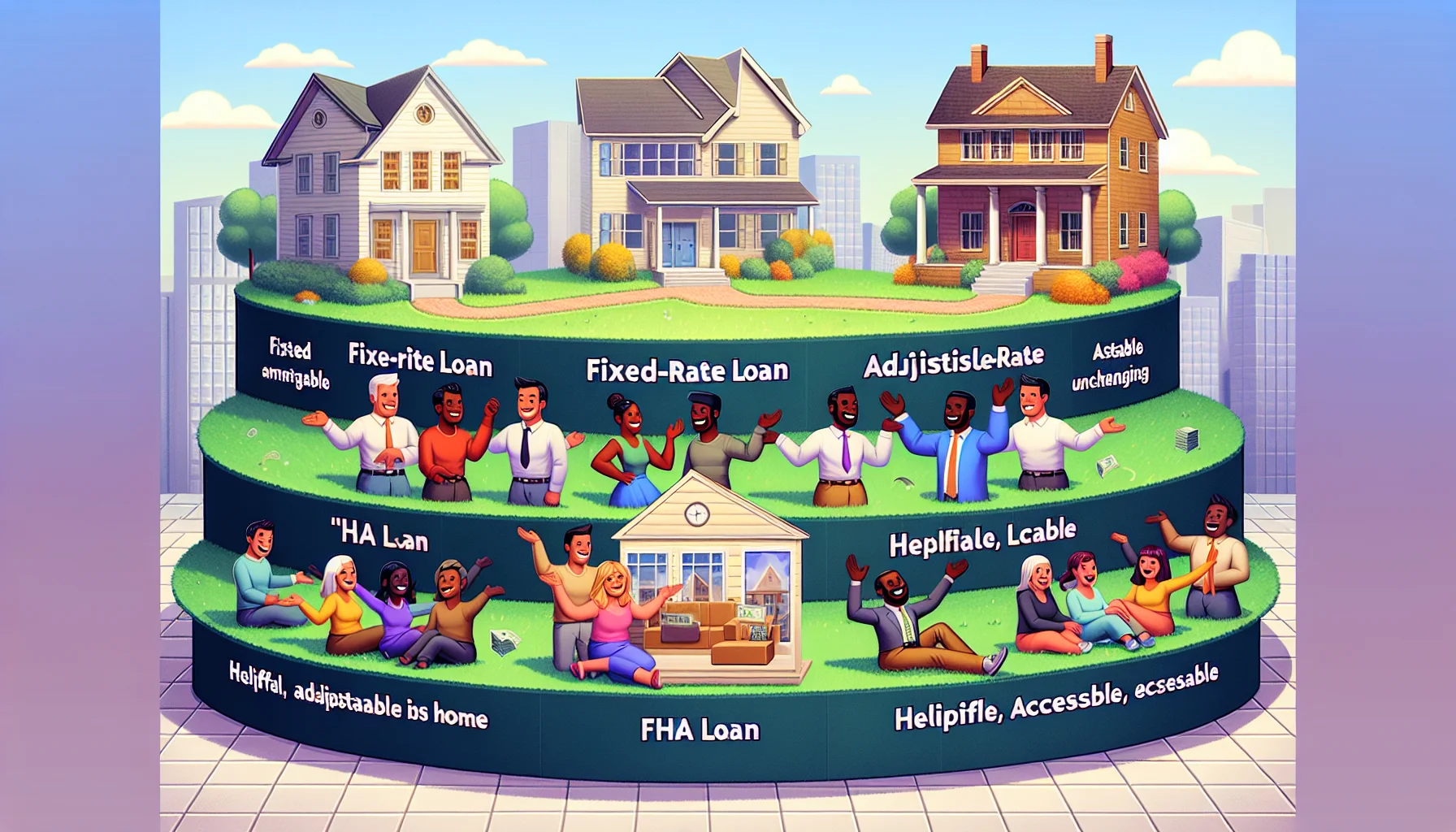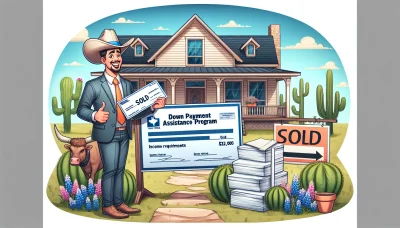Real estate loan types Quiz
Test Your Knowledge
Question of
Understanding Real Estate Loans
Types of Real Estate Loans
- Conventional Mortgages
- Government-Insured Loans
Key Factors in Choosing a Loan
- Interest Rates
- Loan Terms
Conventional Mortgage Options
-
Fixed-Rate Mortgages
Benefits of Fixed Rates
Fixed-rate mortgages offer the stability of a constant interest rate throughout the entire term of the loan, making financial planning easier.
Considerations Before Choosing
While the stability is a significant advantage, it's important to consider that rates might be higher than adjustable rates at the time of the loan agreement.
-
Adjustable-Rate Mortgages (ARMs)
How ARMs Work
ARMs start with a fixed interest rate for a predetermined period and then adjust based on market rates. The initial rate is usually lower than that of fixed-rate mortgages.
Risks and Rewards
The main risk with ARMs is that interest rates can significantly increase over time, raising the monthly payment. However, the initial lower rates can offer savings, especially if the borrower plans to sell before the rates adjust.
Government-Backed Loan Programs
-
FHA Loans
-
Qualifying for an FHA Loan
-
FHA Loan Limits
-
-
VA Loans
-
Advantages for Veterans
-
VA Loan Eligibility
-
Non-Traditional Financing Solutions
Hard Money Loans
When to Use Hard Money Loans
Hard money loans are typically used in situations where a quick turnaround is needed for financing, such as for real estate investments, flipping houses, or when traditional bank loans are not an option due to credit issues or other reasons.
Typical Terms and Conditions
These loans often have higher interest rates than traditional loans, shorter repayment terms, and are secured by the property itself. The loan-to-value ratios are usually lower to protect the lender in case of default.
Bridge Loans
Scenarios for Bridge Loans
Bridge loans can be useful in scenarios where you need to finance a new property before your current property sells, such as moving to a new home or investing in a new property before selling an existing one.
Interest Rates and Fees
The interest rates and fees for bridge loans are typically higher than traditional mortgages due to the short-term nature and increased risk for the lender. These loans also may include administration fees or appraisal fees.
Refinancing Your Property
Cash-Out Refinance
Understanding Equity Extraction
Equity extraction involves taking out a new mortgage for an amount higher than your current mortgage balance, allowing you to receive the difference in cash. This method can be beneficial for homeowners looking to consolidate debt, finance home improvements, or cover other significant expenses.
Impact on Mortgage Payments
Opting for a cash-out refinance might result in higher monthly mortgage payments, depending on the terms of your new loan. It's crucial to consider the loan's interest rate and term when evaluating the financial impact of this refinancing option.
Streamline Refinance
The Streamline Process
Streamline refinancing offers a simplified loan application process, requiring less documentation and no appraisal in many cases. This option is primarily available to those with government-backed loans, such as FHA and VA loans, aiming to lower the interest rate or switch from an adjustable to a fixed-rate mortgage.
Pros and Cons
The main advantage of streamline refinancing is the reduced paperwork and potentially faster approval times. However, it may not always provide the most savings compared to other refinancing options, especially if closing costs are high or if the interest rate difference is minimal.
Investment Property Loans
-
Residential Investment Loans
- Financing Single-Family Homes
- Multi-Family Property Financing
-
Commercial Real Estate Loans
- Commercial Loan Structures
- Qualifying for Commercial Loans
Navigating Loan Approval Processes
Documentation and Requirements
- Income Verification Documents
- Credit Score and History Checks
Common Pitfalls to Avoid
- Debt-to-Income Ratio Issues
- Incomplete Application Errors












